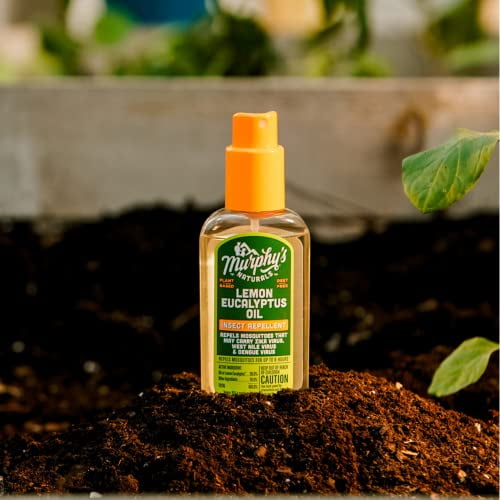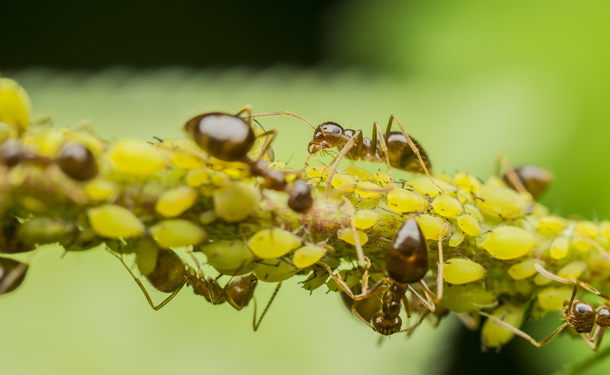This post following next on the subject of Plant-based insect repellents is extremely enlightening. Have a go and make your own personal ideas.

Summer season time relates to lots of exterior enjoyable. Nonetheless, it likewise means that pests remain in wealth. Do not be shocked if flies, insects, cockroaches, and also ants penetrate your residence. If you do not desire unwanted guests to invade your property, chemical pesticides is not your only solution. You can also trust details vegetation to keep scary crawlies away. With critical use plants, you can reduce the use of toxic bug sprays. Below are the most effective plants that do wonders in driving bugs away. Plus, these plants offer you an added perk of visual allure as well as terrific scent.
Marigold
These gold flowers resemble a ray of sunshine. They will certainly make any type of room appearance positive and also lively. Best of all, the aroma of marigolds drive insects away. They even repel rats as well as rabbit. Therefore, they will make a fantastic enhancement indoors and also outdoors. Plant a bed around your home to drive pests while including in your house's curbside appeal.
Lemongrass
Lemongrass has a wonderful citrus fragrance reminiscent of citronella, which is the standard component of natural insect repellants. Though the human nose loves the fragrance, it drives mosquitoes ridiculous. So go on and plant pots of citronella as well as maintain them around your residence. You will love the fresh, tidy scent undeniably.
Lavender
The scent of lavender is kept in mind for its stress-relieving and relaxing homes. Thus, lots of studies state that it even advertises good rest. Amusing sufficient, the exact same aroma that humans enjoy drives bugs away. In fact, you will certainly find lots of store-bought sachets with lavender for your cabinets since they work remarkably well in turning-off moths. You can additionally keep potted plants near entranceways to keep out moths, fleas, insects, and also even rodents.
Chrysanthemums
These blossoms are not just gorgeous however they have the power to purify indoor air. They are wonderful at removing toxic substances. Most notably, these blooms push back ants, lice, fleas, vermins, silverfish, ticks, Visit Link and cockroaches. These attractive flowers will certainly make you grin so go head and put them all over your home.
Mint
This is a preferred flavor for toothpaste, mouth wash, gum tissue, and even gelato. Numerous people like the special preference which leaves a tingling feeling in your palate. Yet the taste and fragrance of mint that humans enjoy is irritating for mosquitoes. You can diffuse mint vital oils or make your very own mint spay by blending a few drops with vinegar as well as vodka.
Basil
Basil is a marvel natural herb that can be found in handy. You can use it for lots of dishes like pastas, stews, pizza, salads, and also soups. In addition to being an excellent ingredient, basil is a huge insect turn off Rates because they don't like the fragrance. If you desire pests, specifically insects and also flies, away from your home, place pots of basil near your windows and entrances. You don't' even need a green thumb to grow basil since they are durable plants that are super easy to grow.
Rosemary
Finally, include rosemary in your herb yard since they drive insects away. You can maintain pots inside your home as well as outdoors. Besides, sprigs of rosemary push back moths and also silverfish. In addition to that, this is one more excellent natural herb that you can utilize for cooking.
Nevertheless, if you don't seem like growing or have a severe invasion, you need to call an expert pest control man to take care of pest nests. A trusted provider can zap them away with environmentally friendly chemicals, and help you develop a preventative strategy with plants as well as important oils.
How to shop for insect repellent
From sprays and lotions to rubber bracelets and stick-on patches infused with essential oils, there are many products on the market that claim to repel insects. But they’re not all equally effective, and they don’t all have comprehensive data or research to support their claims.
“I think the key to choosing a proper insect repellent is to get something that you can do some research on and see effective scientific data that shows it works,” said Daniel Markowski, a technical advisor for the American Mosquito Control Association. “If something seems too good to be true, it probably is.”
With that being said, experts said there are a few factors you should consider while shopping for insect repellent, which we detailed below.
1. EPA registration
All the experts we spoke to recommended finding an EPA-registered insect repellent. The EPA has an online search tool that helps you look up registered bug repellents, and we used it to check the registration numbers on each of the products we recommended. All registered repellents offer protection against mosquitoes, but only some work against ticks.
2. DEET, DEET-free versus natural
Most experts we consulted agreed that DEET is the most effective active ingredient in an insect repellent. DEET has gotten a bad reputation as being unsafe, but experts told us there are no health risks associated with using it. “DEET is a controversial ingredient, largely because of misinformation. Some folks confuse it with DDT, an unrelated and banned compound in the United States, and others worry about reported neurological issues associated with DEET use that have been disproven by the medical community,” noted Erika T. Machtinger, an assistant professor of entomology at Penn State’s College of Agricultural Sciences.
Despite assurance from the medical community that DEET is safe, shoppers may consider looking for DEET-free insect repellents or ones labeled “natural.” There are some EPA-approved DEET-free insect repellents with other active ingredients, but experts don’t recommend natural repellents due to the lack of data to verify their effectiveness claims (and none of them are EPA-approved).
3. The concentration of active ingredient in a product
Our experts told us that a higher percentage of an active ingredient does not increase your level of protection, though it does keep you protected for a longer period of time. In other words, the higher the concentration of an active ingredient, the longer the repellent will be effective, said Eva Buckner, the medical entomology extension specialist at the University of Florida. Concentrations can range anywhere from 10% to 100%, and according to Machtinger, repellents will generally work the same for the first couple of hours after they’re applied.
Markowski said most experts will advise against using a bug repellent that contains over 30% of an active ingredient. “You don’t really gain additional repellency from a product with a 70% or 100% concentration of active ingredients, but you are putting a lot more of the actual chemical on your skin,” he said. “Therefore, you’re much more likely to have adverse effects like allergic reactions.”
https://www.nbcnews.com/select/shopping/best-insect-repellents-ncna1271196

I ran across that blog post about Plant-based insect repellents while doing a search on the web. Sharing is good. You never know, you may just be doing someone a favor. I praise you for your time. Come back soon.